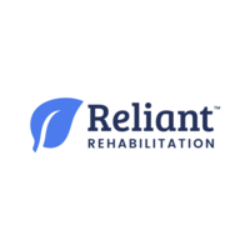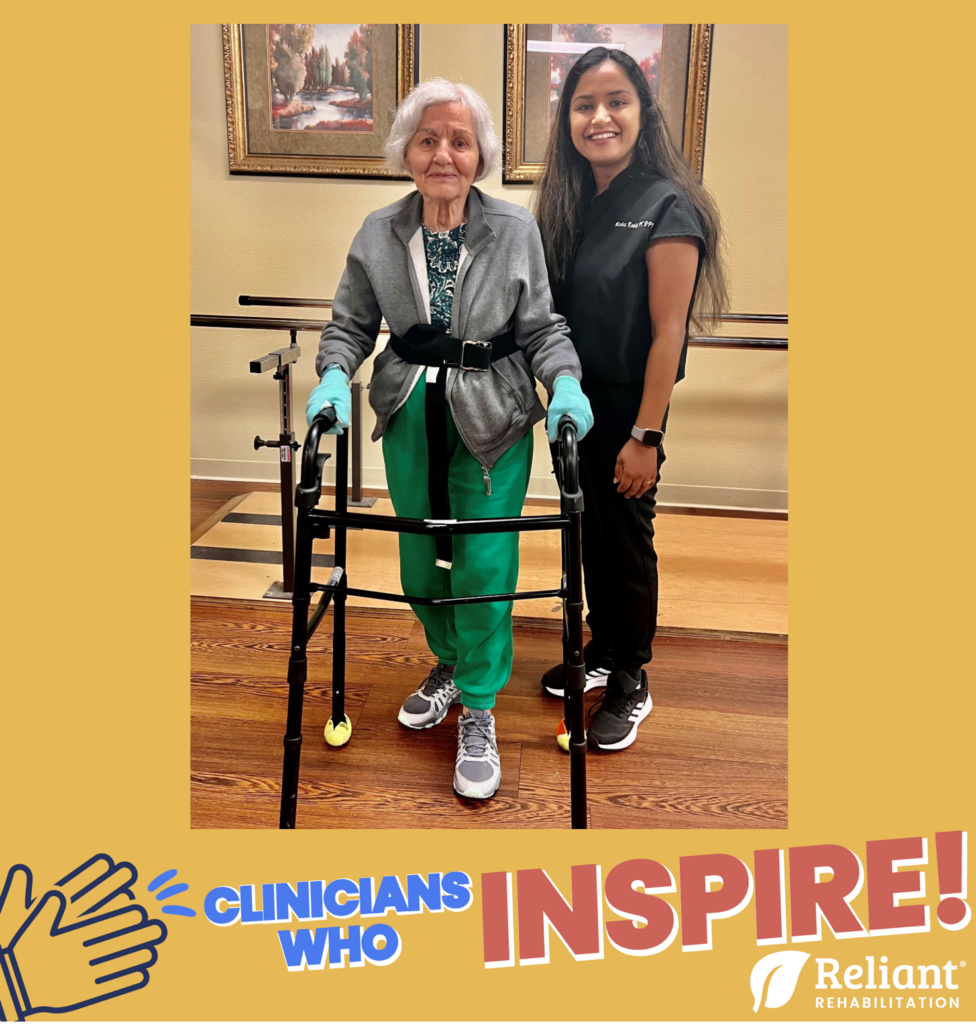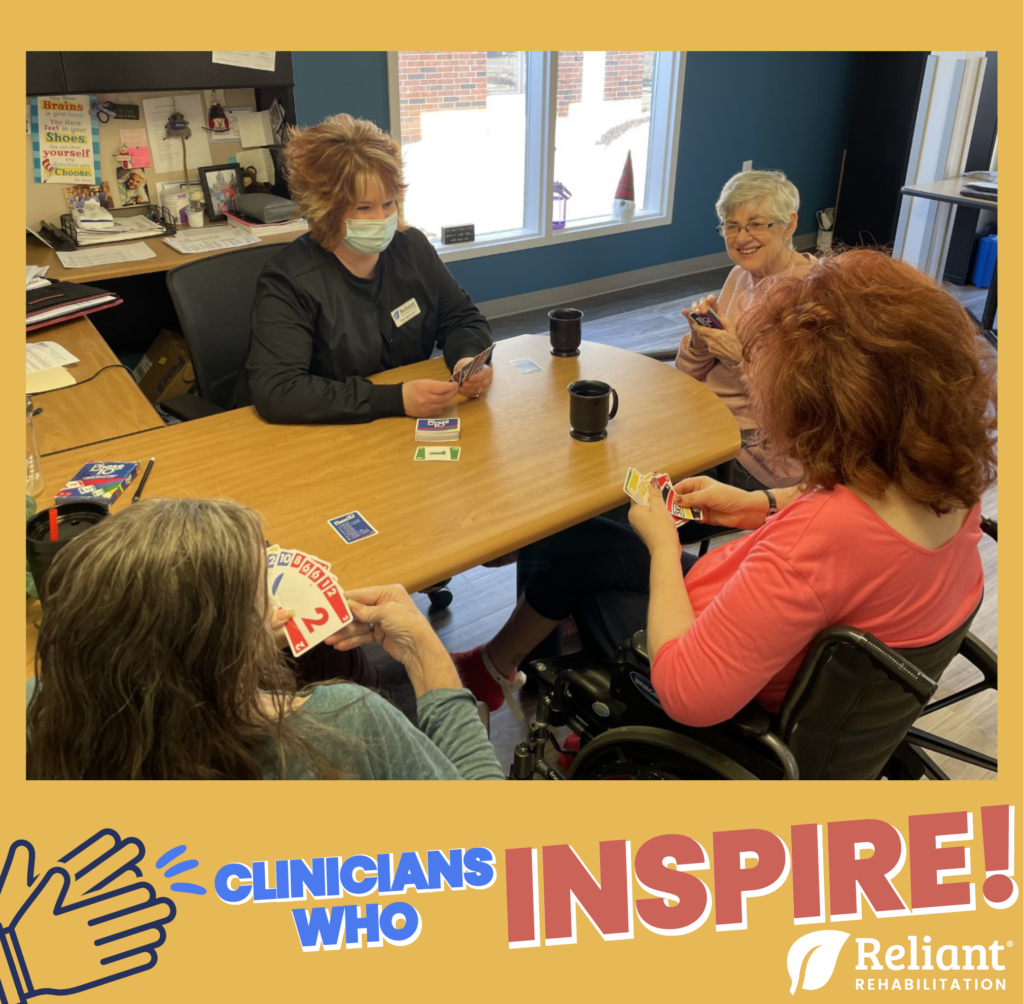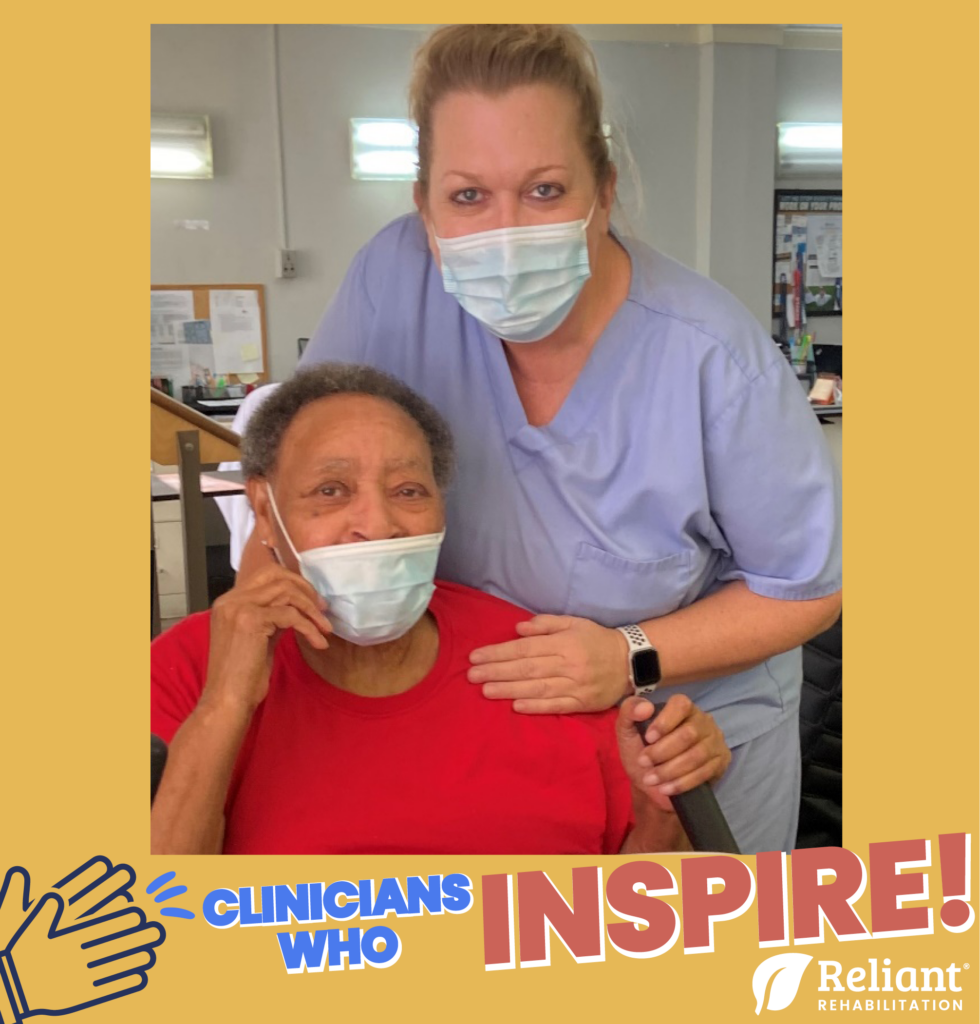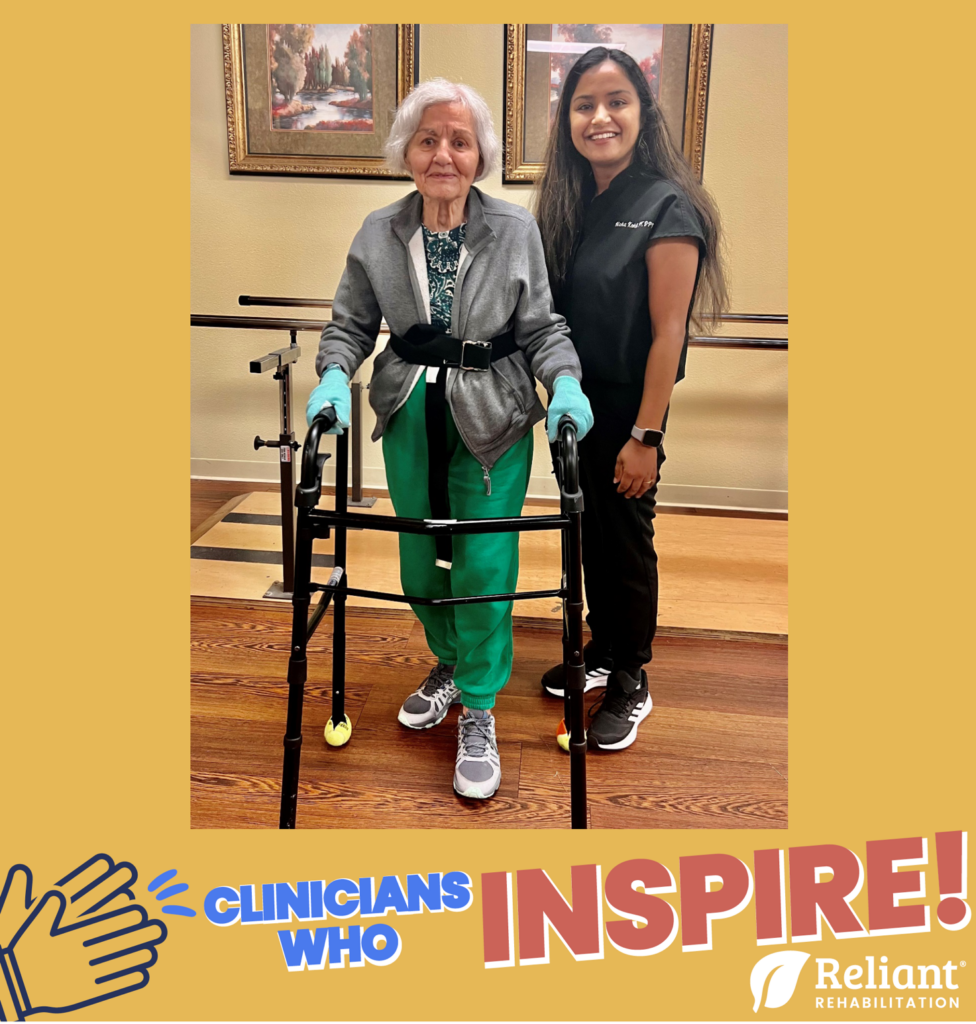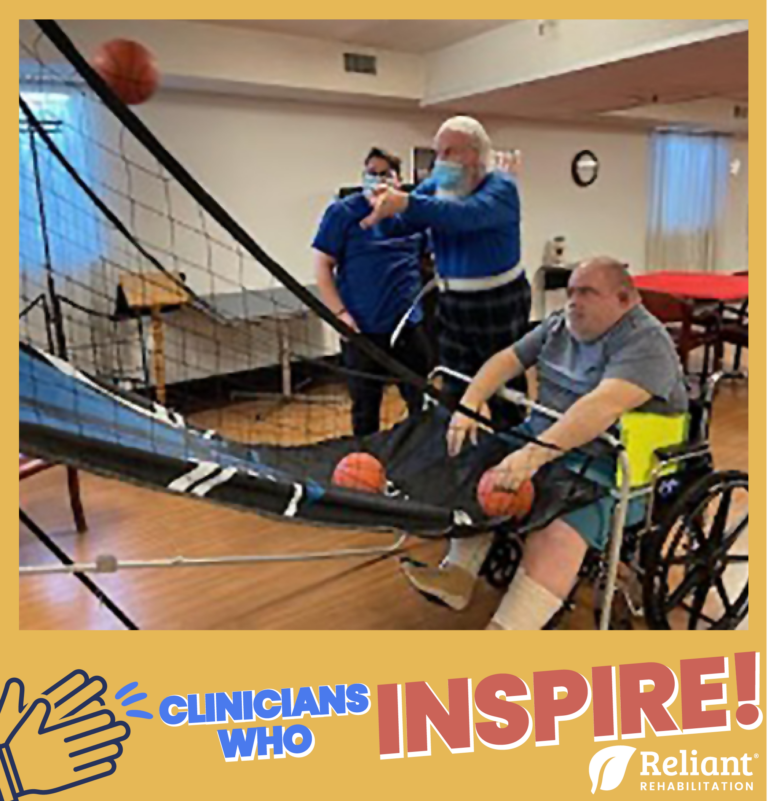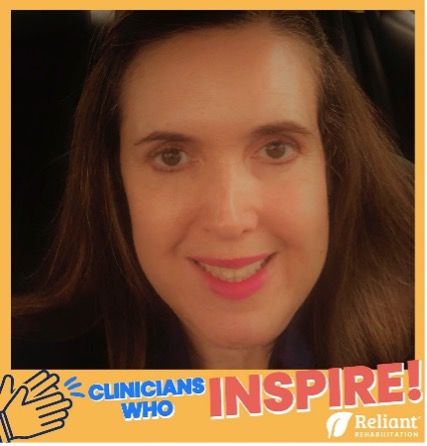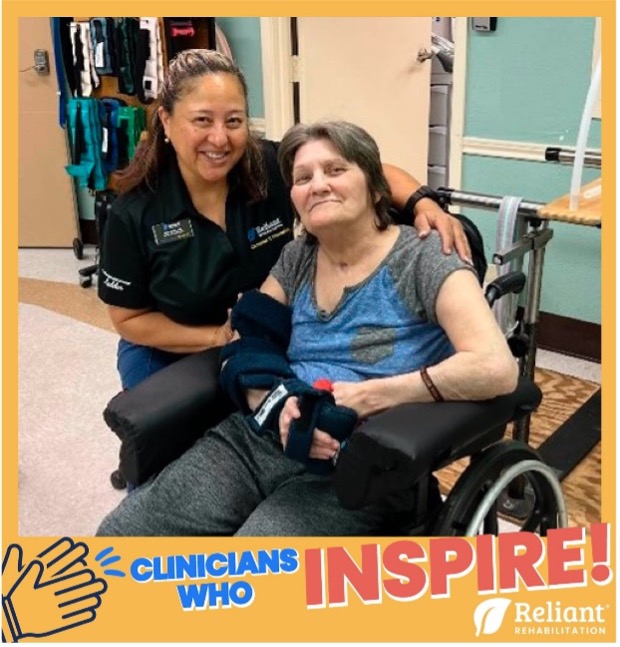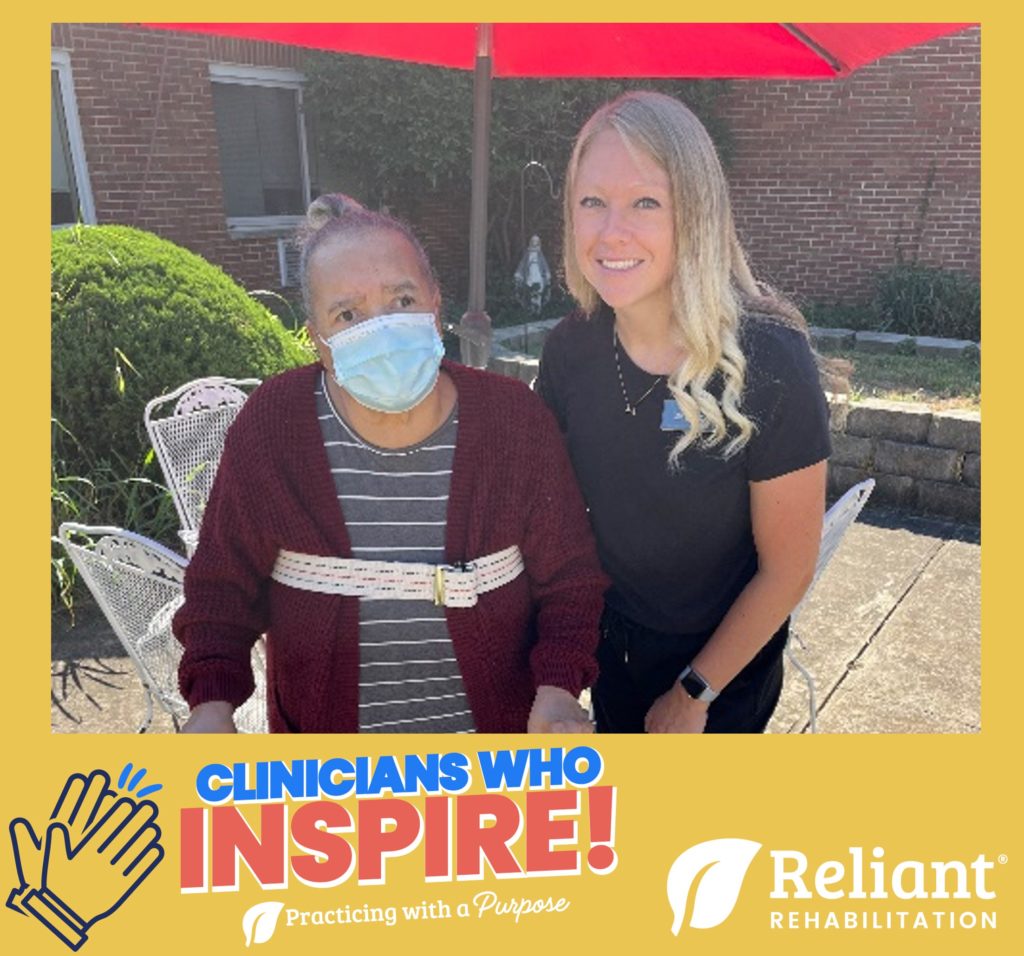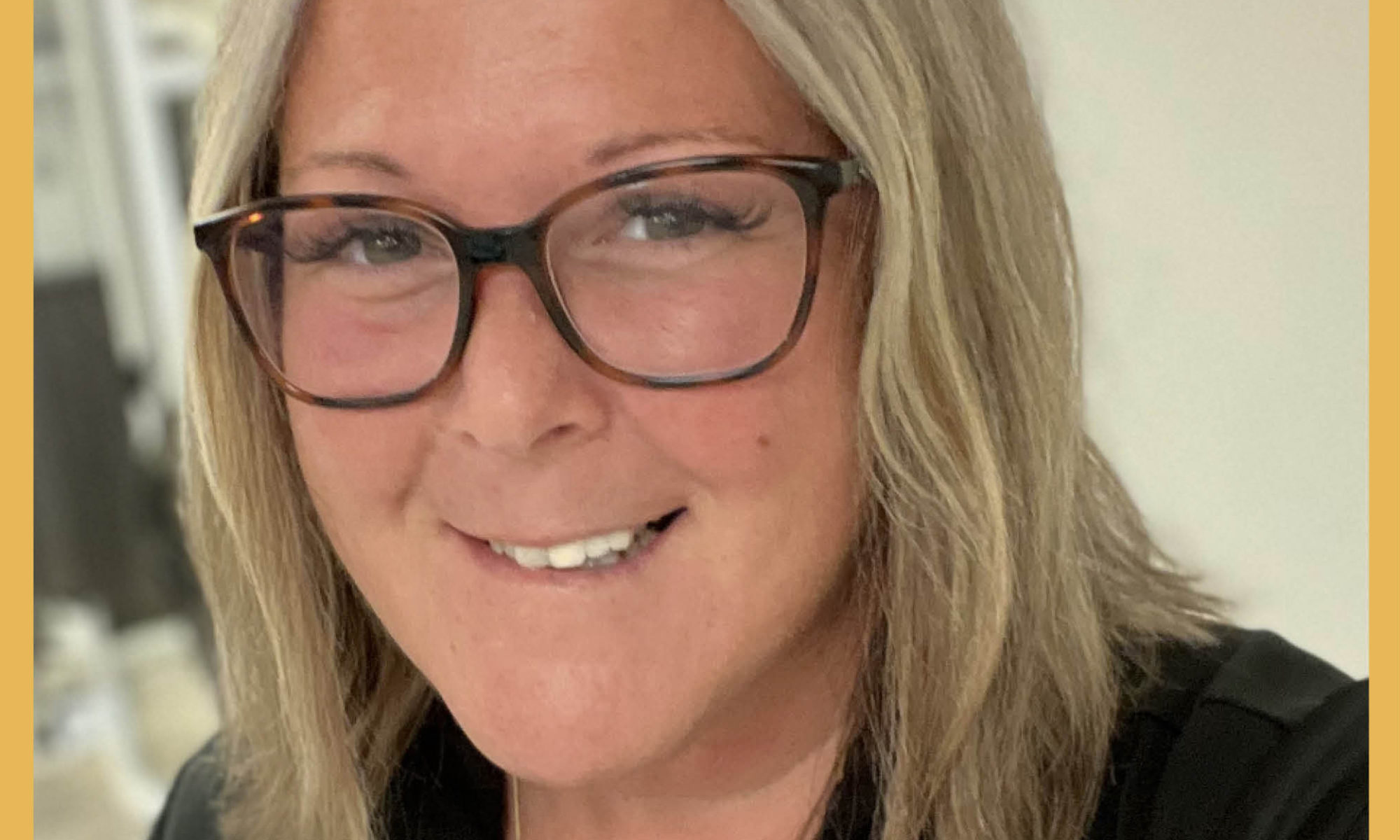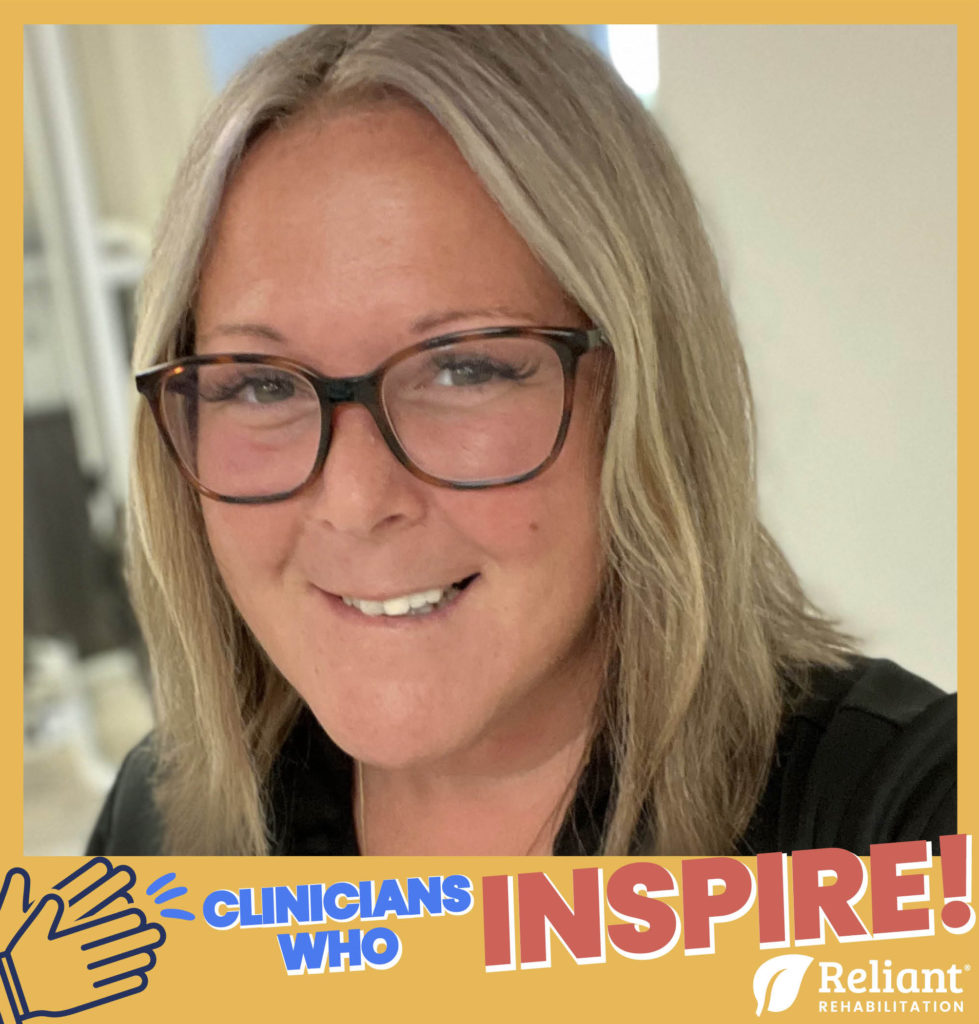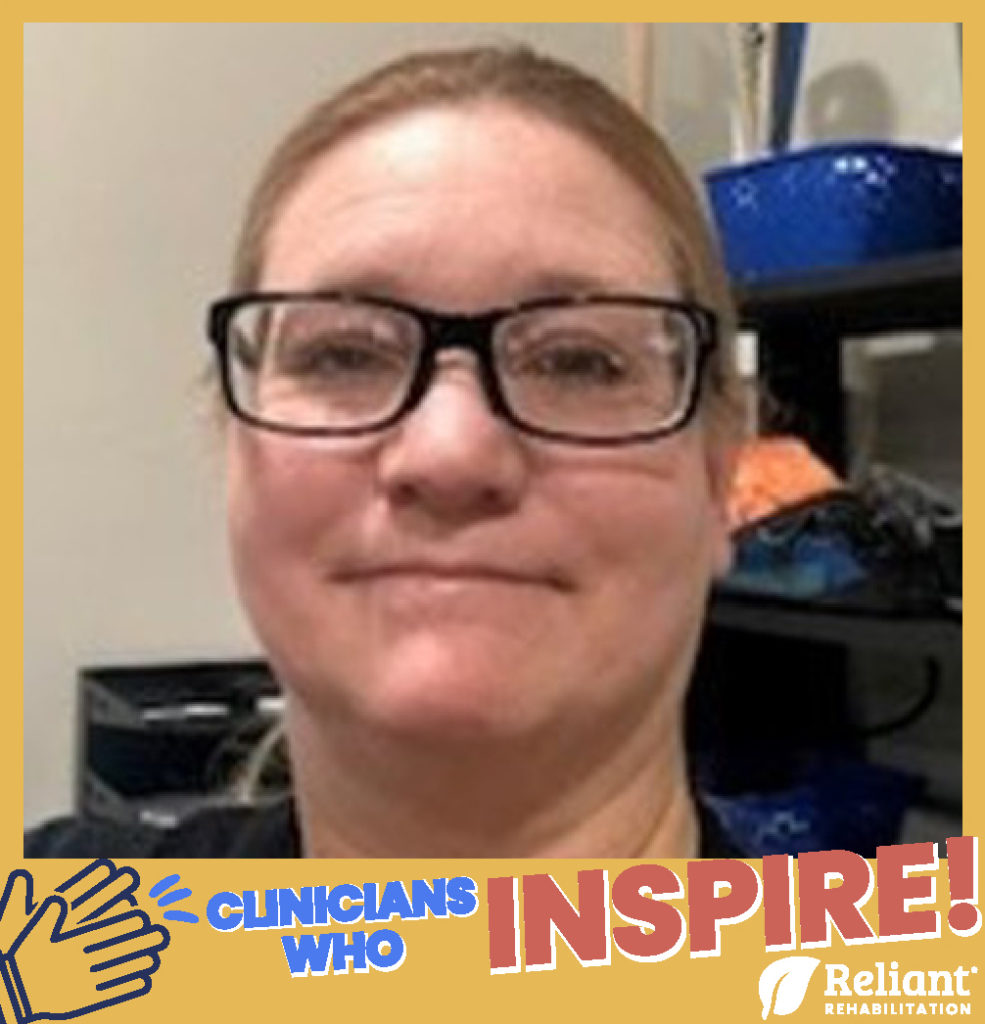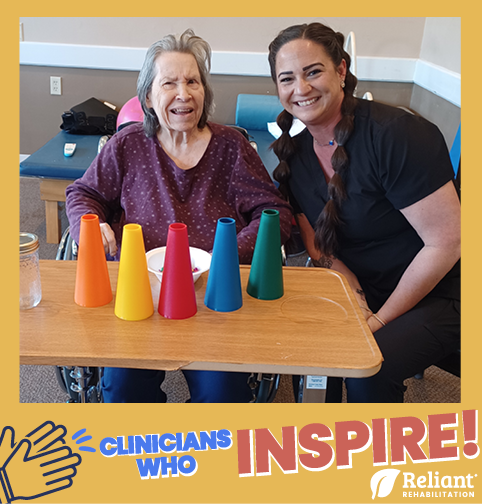
This month we had the privilege of speaking with Rhiannon Haynes, COTA and DOR, Champion Level I, at Envive Healthcare of Hartford City, to share some insight and inspiration from clinicians in the field. As we discussed treatment interventions and interdisciplinary communication, it was evident that Rhiannon brings “good vibes only” everywhere she goes.
Rhiannon encourages therapists to have no fear in thinking outside the box, trying new things, and reaching out to colleagues when it comes to providing the best treatment for residents. She shared the importance of humor, positivity, and patient-centered goals to motivate residents to not only participate, but also enjoy their therapy sessions. Recently, the therapists at Hartford City have incorporated the use of ‘Alexa’ in their therapy gym. Whether it be to play music during exercise, practice communication skills with Q&A, or to catch up on the week’s weather forecast, it has proven to bring something extra to therapy. Rhiannon also shared that holiday groups to create crafts and door decorations help brighten the halls of their community.
The staff at Rhiannon’s facility share the common goal of being there for one another so that ultimately, they can be their best for their residents. She spoke of the interdisciplinary team as a “family unit” that values each person’s role in overall cohesion and communication. “We all talk to one another with openness and common respect. We treat each other how we want to be treated, and that makes it easy for good vibes.”
Rhiannon- thank you for sharing your good vibes with your residents, your “family unit”, and your therapy peers! You are an inspiration, and your care matters!

